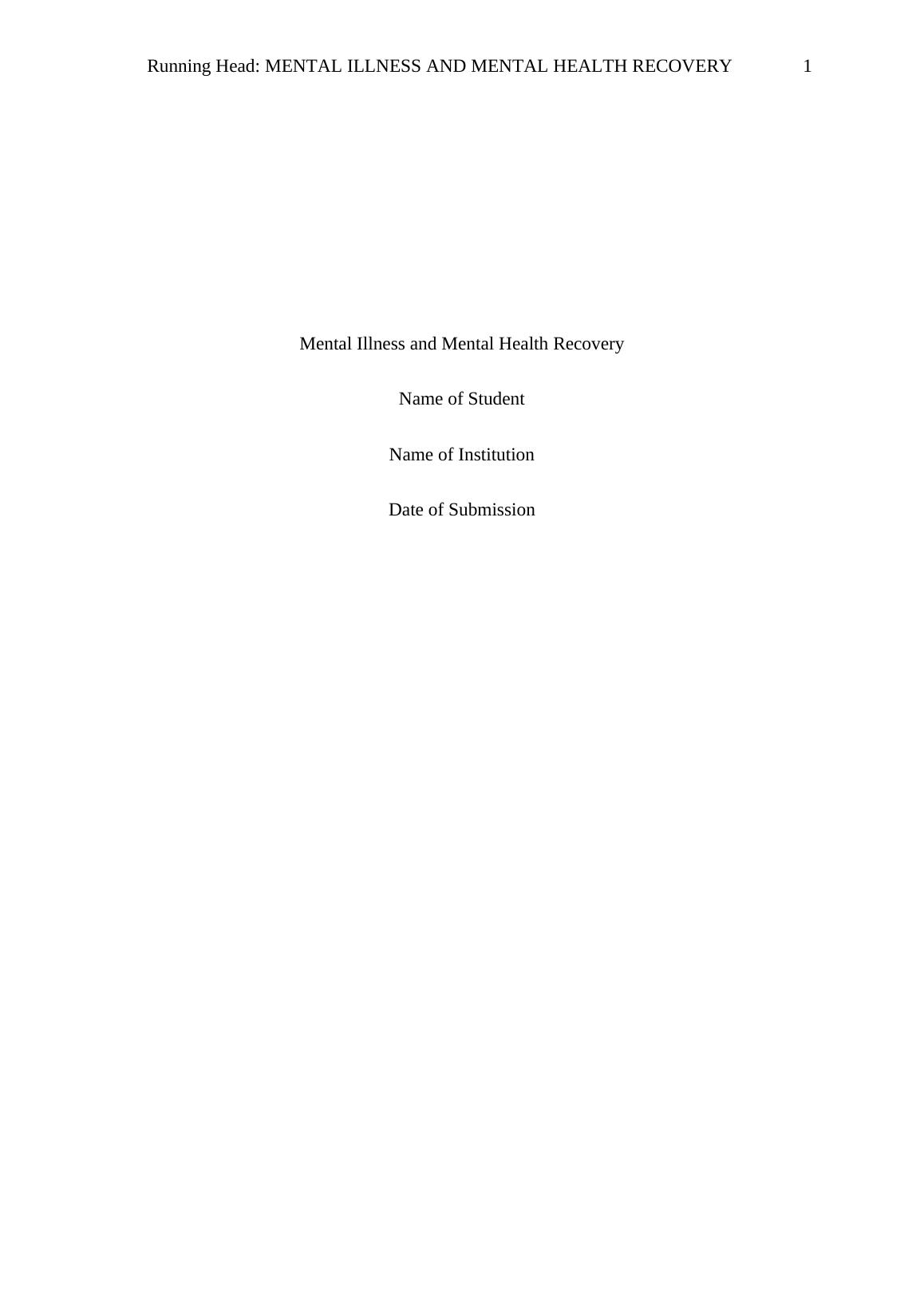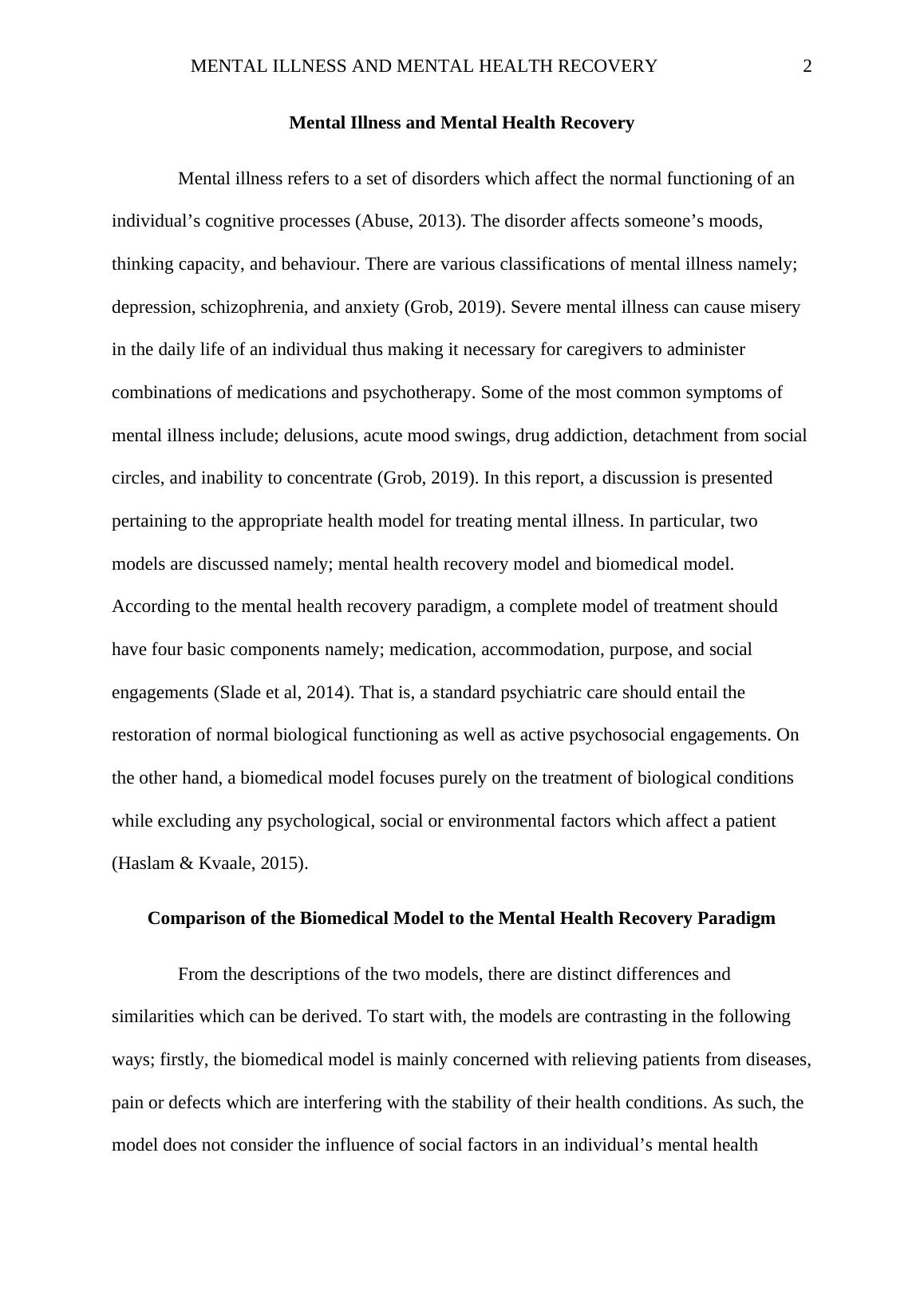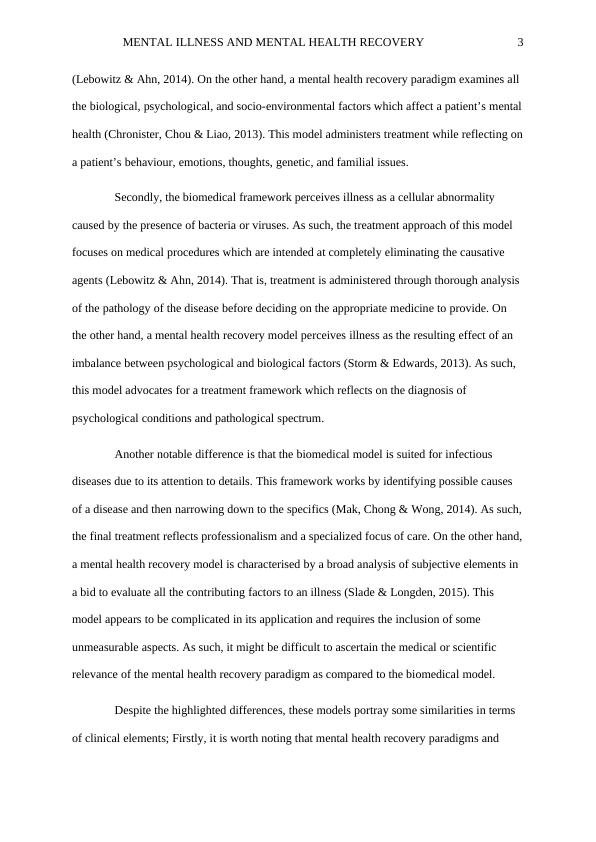Mental Illness and Mental Health Recovery
Assessment guide for the course Contemporary Mental Health
10 Pages2976 Words384 Views
Added on 2022-11-17
About This Document
This report discusses the appropriate health model for treating mental illness, comparing the biomedical model to the mental health recovery paradigm. It also covers the competencies needed by workers to support mental health recovery.
Mental Illness and Mental Health Recovery
Assessment guide for the course Contemporary Mental Health
Added on 2022-11-17
ShareRelated Documents
End of preview
Want to access all the pages? Upload your documents or become a member.
The Biomedical Model of Mental Health and Competence of Workers
|11
|3529
|357
Workplace Culture Report on Compassionate Care for Mentally Ill Patients
|6
|1410
|410
(PDF) Mental health challenges and possible solutions
|11
|2875
|60
Psychosocial and Biomedical Models of Health and Illness
|8
|2133
|372
Assignment on Health Studies
|15
|4421
|29
The World Health Organisation Assignment 2022
|4
|790
|24



